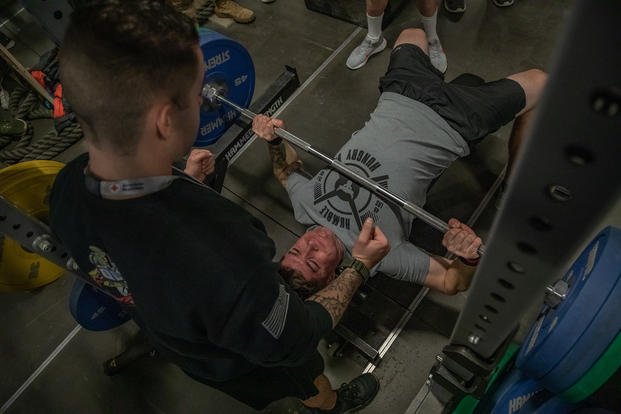
Young recruits preparing for Army Special Forces need to prepare not only for the specifics of training, including running, rucking and other load-bearing activities, but also for building the necessary foundation of strength and durability. Here is this week’s question:
Hey Stew, I’m 6ft 140 lbs. Do you have any recommendations for putting on muscle/weight while also working on improving my run times? My goal is to join the Army Special Forces. I currently run 4 days a week — a long run (about 6 miles), 1 interval run, and then two shorter runs each at about 3 miles. I swim every day, 1,250 yards/session. I do weight training three days a week when I do not run. I have absolutely no athletic background, so I’m starting from scratch. Does this sound like a decent plan? Is there anything that you’d recommend? Thanks, John
John, that is really good for a “beginner.” I would not classify your current efforts as starting from scratch if you are swimming more than 10 kilometers a week, lifting three times a week and running 15 miles per week. I would classify you as a high intermediate level, to be honest. So good job. But if you want to gain weight, you need to do two things: Eat big and lift big.
My advice is to keep your running as is, but add rucking on leg days (for now). Take out all swimming because you are just burning a lot of calories, making it difficult to gain weight. Now lift more. Warm up with calisthenics and lift to build some mass and muscle and gain strength. Add more calories from food so you are getting a surplus of 500-1,000 calories a day. This is not easy, but it will help you gain 1-2 pounds a week.
Another thing to help you gain weight is to take out swimming each day, because you do not need it if you are going to the Army. You can spend that time rucking and lifting to focus on strength and muscle growth, versus cardio in zero gravity. However, whenever you are aching from runs or rucks, swimming is a good nonimpact, cardio activity that will help you with recovery. if needed. But you do not need daily swims at this point.
You can still run but focus on your goal mile pace while trying to gain weight. It is good to mix up the types of running with longer aerobic-based runs, sprint/jog intervals and goal mile pace training. I would keep running for four days per week and use it as a cooldown for upper-body lift days. On your upper-body days, start with 3-4 sets of 8-10 reps of the basic lifts like bench presses, pulldowns, rows and military presses. It is good to warm up with push-ups and pull-ups on these days, so you maintain your calisthenics, too. Mix in planking as well and build up to 4-5 minutes of holding the plank pose.
On leg days, you can warm up with some air squats and jogs like the squat pyramid going from one to 10 sets: One squat, jog 100 meters; two squats, jog 100 meters; three squats, jog 100 meters … up to 10 squats. Then go lift with leg machines at first until you learn some of the techniques of squats and deadlifts.
As a beginner, you can start with dumbbells or a weight vest and just do squats and lunges with 20- to 25-pound dumbbells or a weight vest. Do these leg days twice a week and top off your leg day with a ruck walk with a backpack or weight vest of 10-20 pounds. As with anything, progress logically with rucking and build up in weight and distance every month. Given your current size and running ability, I would start with 15-20 pounds (10%-15% of your body weight) and walk fast for an hour two times a week. See How to Train for Ruck Marches for more information.
In conclusion, I would do five days of weight training, mixing in upper- and lower-body day split routines. Avoid swimming unless you are not feeling well due to running/rucking impact aches and pains. Run four days a week and ruck two days a week (on leg days). Do not skip your mobility day. You need a day off and mobility days each week to recover and grow.
Finally, make sure you are eating every meal, adding a milkshake, a scoop of peanut butter and other extra calories so you can actually produce a caloric surplus at the end of the day. Do not be afraid to eat carbs, as you need them for both energy and extra calories.
Stew Smith is a former Navy SEAL and fitness author certified as a Strength and Conditioning Specialist (CSCS) with the National Strength and Conditioning Association. Visit his Fitness eBook store if you’re looking to start a workout program to create a healthy lifestyle. Send your fitness questions to [email protected].
Want to Learn More About Military Life?
Whether you’re thinking of joining the military, looking for fitness and basic training tips, or keeping up with military life and benefits, Military.com has you covered. Subscribe to Military.com to have military news, updates and resources delivered directly to your inbox.
Story Continues
